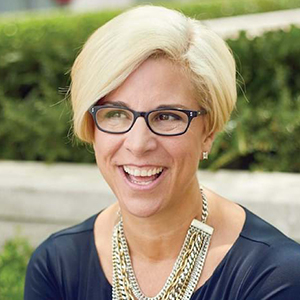
Storytellers Need to Act Like Toddlers
As a comms pro with more than two decades in the field, I’ve experienced firsthand how the art of storytelling has evolved (and continues to evolve). And, while the core tenets of a good story haven’t changed, the way we tell stories — messengers, formats, audiences, channels — continues to collide, intersect and change shape. So with all this rapid change in the media ecosystem, what’s next?
Last week, I was fortunate to attend the fifth annual Future of Storytelling Summit. For two days, more than 400 comedians, environmentalists, food technologists, creative directors, artists, scientists and more came together at an “arcade and amusement park classroom of tomorrow” to learn from experts and each other about the future of storytelling. The sessions — ranging from poetry in motion, visual tap dancing and virtual reality — brought to life how technology has impacted the narrative process and reinforced how all of us now can engage, interact and potentially be at the center of a story.
I geeked out on the VR stuff for a bit, but what really captured my attention was deconstructing how we think, what we see, and how that shapes the stories we create and experience. This came to life in a few sessions I attended.
The first was with Dr. Beau Lotto, a neuroscientist and founder and CEO of Ripple Labs & Misfits. His research on illusions and perceptions is all about getting people to see differently from how they see today. Everything we see is a consequence of our assumptions and biases that we can’t escape. As storytellers we want people to see (feel, hear) something they haven’t seen before and/or to see something in a new way. But if science indicates we are naturally tuned to be biased, how do we get out of it? According to Dr. Lotto, the first step is to stop, look away from the obvious — and ask WHY? The who, what, when and where only uncover meaningless, ambiguous, and uncertain facts and information. I just loved this because there is a tendency to shy away from the “why” because it makes people uncomfortable and it raises doubt. But that is the point! Check out his stuff here, and if you ever get a chance to hear him speak, do it!
The other session that really lit me up was The Power of Observation led by Brock Davis, CCO at Space 150. Brock talked about extracting the extraordinary from the ordinary. His point was that images (or stories) are just waiting to be discovered if you can see things differently. You can follow him on Instagram (@brockdavis) to get the full experience, but he turns everyday objects into something unexpected. He encouraged us all to open our eyes and chase curiosity.
As I step back and observe the world around me, I am reminded that my kids are the best at seeing things I don’t and finding the beauty I walk right by. Many times over the past two days I heard elements of the concept “act like a toddler.” A return to playing, observing without assumptions, asking questions and being open to discovery. This summit reminded me how much I love the art and science of storytelling, and it opened all of my senses to the possibilities. And the first thing I am going to do is start acting like a toddler.
The latest blogs from WE
Decoding Gen Alpha: A Primer on the Next Gen of Consumers
Why Gen Alpha Will Fuel Spending This Season
Why Reputation Is a Business Driver in Healthcare


